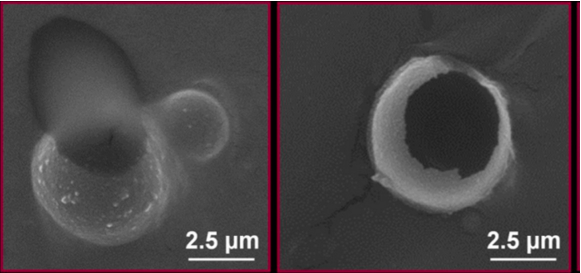Grand Challenges Explorations grant awarded for groundbreaking research in global health and development

The University of Melbourne was announced as a winner of a global Grand Challenges Explorations grant – an initiative funded by the Bill & Melinda Gates Foundation.
Professor Muthupandian Ashokkumar along with Dr Francesca Cavalieri and Dr Srinivas Mettu will pursue an innovative global health and development research project, titled ‘Edible Micro-Balloons for Nutrition Enhancement’, aimed at relieving malnutrition among mothers and infants in developing countries.
Grand Challenges Explorations (GCE) supports innovative thinkers worldwide to explore ideas that can break the mold in how we solve persistent global health and development challenges.
Professor Ashokkumar’s project is one of 34 GCE Round 21 grants announced by the Bill & Melinda Gates Foundation.
To receive funding, Professor Ashokkumar’s team and other GCE winners demonstrated in a two-page online application a bold idea in one of three critical global heath and development topic areas. The foundation will be accepting applications for the next GCE round in February, 2019.
The grant will allow the team to produce edible microballoons made from protein that contain essential nutrients for adding to common foods to combat malnutrition in mothers and infants.
They have developed a method that uses ultrasound waves to encapsulate oil- and water-soluble vitamins and minerals within edible shells made from a range of proteins including milk and pea proteins.
Encapsulating the nutrients, rather than adding them directly to food, helps keep them stable and promotes their absorption in the body. It can also mask unpleasant tastes, and control the timing and location of nutrient release, which can increase their performance.
Professor Ashokkumar said: “We are very grateful to the Gates Foundation for awarding us this grant funding, allowing us to take our work to the next stage.”
Dr Cavalieri, who has done seminal work with Professor Ashokkumar on the development of air/oil filled microballoons over the last 11 years said: “Edible microballoons have a great promise in enhancing the nutritional levels of various foods.”
Dr Mettu, a chemical engineer who is part of the project funded by the Bill & Melinda Gates Foundation and measured the microballoons’ ability to withstand typical food processing conditions said: “Thanks to the advanced experimental techniques developed by us at the University of Melbourne, we could measure the sturdiness of an individual microballoon and its 3D deformation to show that they are a very hard nut to break.”
The key research that led to this grant was published in Soft Matter, a journal of the Royal Society of Chemistry.
About Grand Challenges Explorations
Grand Challenges Explorations is a $US100 million initiative funded by the Bill & Melinda Gates Foundation. Launched in 2008, over 1400 projects in more than 65 countries have received GCE grants. The grant program is open to anyone from any discipline and from any organisation. The initiative uses an agile, accelerated grant-making process with short two-page online applications and no preliminary data required. Initial grants of $US100 000 are awarded two times per year. Successful projects have the opportunity to receive a follow-on grant of up to $US1 million.